#Private Schools
Text
4K notes
·
View notes
Text
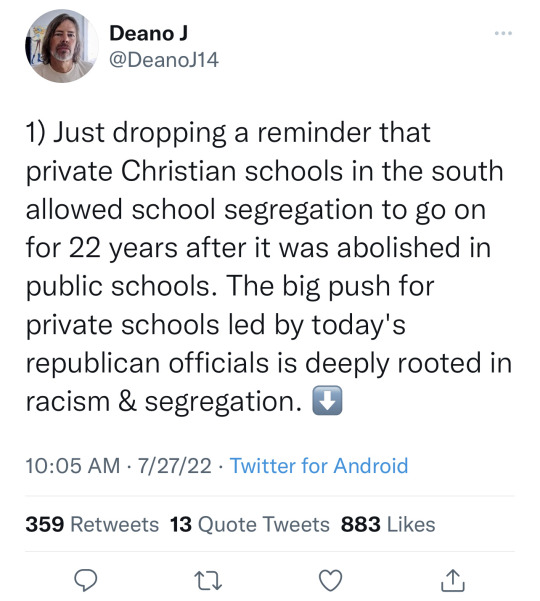


“The Conservative effort to destroy public education began the day Brown v Board of Education said they must be integrated.”
“School choice” is a racist dogwhistle for re-segregation.
There should be no such thing as privatized or profitized education, and religious & private schools should not be funded with public tax dollars.
#politics#republicans#education#voucher schools#desegregation#school choice#charter schools#separate but equal#private schools#privatized education#brown v board of education#separate but unequal
1K notes
·
View notes
Text
I wonder how homeschooling is actually viewed nowadays, because at this point homeschooling can be way better than public schooling depending on where you live and what materials you use. Homeschooling groups can be massive and well put together to the point where they provide actual skills and a stronger support system than brick and mortar schools. Homeschooling curriculums can be teaching worthwhile things while also providing a different way of learning. I don’t know. Seems weird that we could still be stuck in the idea that all homeschooling is misinformed and all homeschoolers are weird and stupid and socially inept.
38 notes
·
View notes
Text


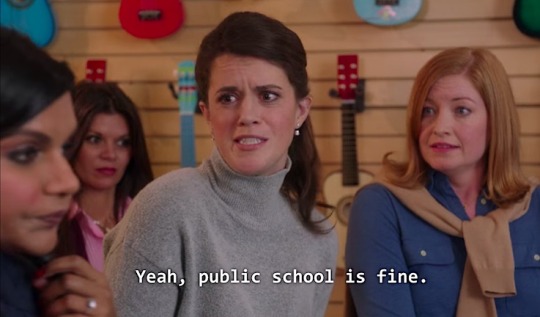
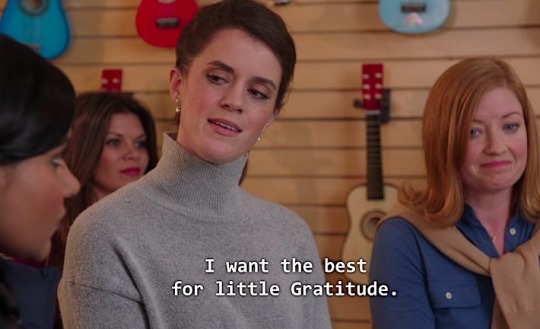
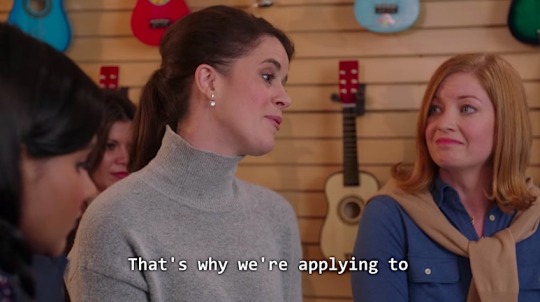
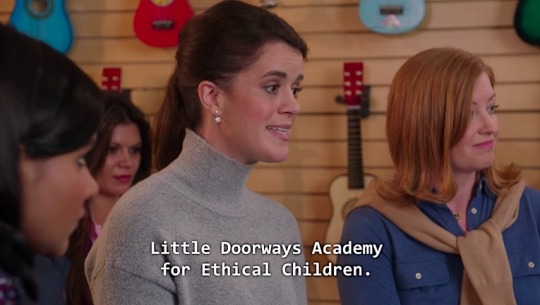


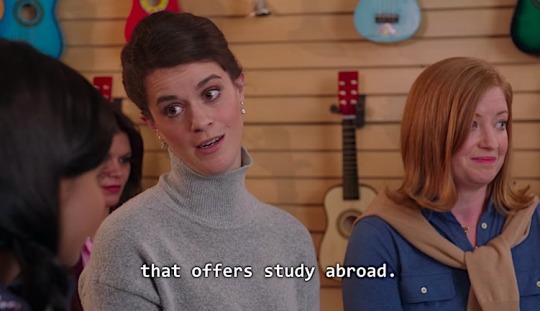
#The Mindy Project#preschools#Manhattan#competitive#moms#Mindy Kaling#New York City#public school#private schools#study abroad#preschool#lol#funny#exclusive#NYC#Little Doorways
118 notes
·
View notes
Text
Private schools were handed more than £157m in government-subsidised loans during the pandemic, under a scheme that barred state schools from applying, openDemocracy can reveal.
Elite institutions that benefited include Charterhouse, the former school of chancellor Jeremy Hunt, which charges up to £44,000 a year per pupil.
It received a £5m Covid support loan to help with “any short-term cash flow issues” – despite declaring total income of almost £45m for 2020–21, the financial year in which it claimed the loan.
The King’s former school, Gordonstoun, was also given a £2m taxpayer-subsidised loan, which it said would act as a “buffer” during the pandemic for its plan to build a new state-of-the-art classroom hub on its campus in the Scottish countryside.
And a private performing arts college in Liverpool, co-owned by pop star Robbie Williams and former Tesco boss Sir Terry Leahy, was given a loan worth £2.5m. That loan alone cost taxpayers over £350,000 in fees and interest.
Many loans went to the former private schools of government ministers. State schools were specifically excluded from applying....
#uk politics#ukpol#politics#schools#education#private school#private schools#tax#tax breaks#conservatives
88 notes
·
View notes
Text
Eton College boys 'booed' visiting state schoolgirls - BBC News
Of course they fucking did. Things will never change in this country whilst private education exists.
62 notes
·
View notes
Text
“Mr. Garland’s memo did acknowledge that “spirited debate about policy matters is protected under our Constitution.” That is true but doesn’t go nearly far enough. Education is mostly speech, and parents have a constitutional right to choose the speech with which their children will be educated. They therefore cannot constitutionally be compelled, or even pressured, to make their children a captive audience for government indoctrination.
Public education in America has always attempted to homogenize and mold the identity of children. Since its largely nativist beginnings around 1840, public education has been valued for corralling most of the poor and middle class into institutions where their religious and ethnic differences could be ironed out in pursuit of common “American” values.
The goal was not merely a shared civic culture. Well into the 20th century, much of the political support for public schooling was driven by a fear of Catholicism and an ambition to Protestantize Catholic children. Many Catholics and other minorities escaped the indoctrination of their children by sending them to private schools.
Nativists found that intolerable. Beginning around 1920, they organized to force Catholic children into public education. The success of such a measure in Oregon (with Democratic votes and Ku Klux Klan leadership) prompted the Supreme Court to hold compulsory public education unconstitutional.
The case, Pierce v. Society of Sisters (1925), was brought by a religious school, not a parent. The justices therefore framed their ruling around the threat to the school’s economic rights. But Pierce says that parents can educate their children outside state schools in accord with the parents’ moral and religious views.
Although the exact nature of this parental freedom is much disputed, it is grounded in the First Amendment. When religious parents claim the freedom, religious liberty seems an especially strong foundation. But the freedom of parents in educating their children belongs to all parents, not only the faithful. Freedom of speech more completely explains this educational liberty.
(…)
The public school system, by design, pressures parents to substitute government educational speech for their own. Public education is a benefit tied to an unconstitutional condition. Parents get subsidized education on the condition that they accept government educational speech in lieu of home or private schooling.
(…)
To be sure, Pierce doesn’t guarantee private education. It merely acknowledges the right of parents to provide it with their own resources. And one may protest that economic pressure is not force. But the Supreme Court has often ruled otherwise.
(…)
When government makes education compulsory and offers it free of charge, it crowds out parental freedom in educational speech. The poorer the parents, the more profound the pressure—and that is by design. Nativists intended to pressure poor and middle-class parents into substituting government educational speech for their own, and their unconstitutional project largely succeeded.
Most parents can’t afford to turn down public schooling. They therefore can’t adopt speech expressive of their own views in educating their children, whether by paying for a private school or dropping out of work to home-school. So they are constrained to adopt government educational speech in place of their own, in violation of the First Amendment.
A long line of Establishment Clause decisions recognize the risk of coercion in public-school messages. In Grand Rapids School District v. Ball (1985), the high court condemned private religious teaching in rooms leased from public schools. “Such indoctrination, if permitted to occur, would have devastating effects on the right of each individual voluntarily to determine what to believe (and what not to believe) free of any coercive pressures from the State,” Justice William Brennan wrote for the majority.
Coercion seemed central in such cases because of the vulnerability of children to indoctrination. Summarizing the court’s jurisprudence, Justice Sandra Day O’Connor, concurring in Wallace v. Jaffree (1985), observed that “when government-sponsored religious exercises are directed at impressionable children who are required to attend school, . . . government endorsement is much more likely to result in coerced religious beliefs.”
(…)
Rights are “exceptions” to power, James Madison observed. That is, rights defeat power. But contemporary judicial doctrine allows power to defeat rights—at least when government asserts what is called a compelling interest. One might think that a state’s compelling interest in public education overpowers any parental speech right. Yet because such analysis allows power to subdue rights, it is important to evaluate whether the claimed government interest is really compelling.
The U.S. was founded in an era when almost all schooling was private and religious, and that already suggests that any government interest in public education is neither necessary nor compelling. Further, the idea that public education is a central government interest was popularized by anti-Catholic nativists. Beginning in the mid-19th century, they elevated the public school as a key American institution in their campaign against Catholicism.
In their vision, public schools were essential for inculcating American principles so that children could become independent-minded citizens and thinking voters. The education reformer and politician Horace Mann said that without public schools, American politics would bend toward “those whom ignorance and imbecility have prepared to become slaves.”
That sounds wholesome in the abstract. In practice, it meant that Catholics were mentally enslaved to their priests, and public education was necessary to get to the next generation, imbuing them with Protestant-style ideas so that when they reached adulthood, they would vote more like Protestants.
(…)
The inevitably homogenizing, even indoctrinating, effect of public schools confirms the danger of finding a compelling government interest in them. A 1904 nativist tract grimly declared that the public school is “a great paper mill, into which are cast rags of all kinds and colors, but which lose their special identity and come out white paper, having a common identity. So we want the children of the state, of whatever nationality, color or religion, to pass through this great moral, intellectual and patriotic mill, or transforming process.”
The idea of a common civic culture among children is appealing when it develops voluntarily, but not when state-approved identities and messages are “stamped upon their minds,” as the 1904 tract put it. Far from being a compelling government interest, the project of pressing children into a majority or government mold is a path toward tyranny.
The shared civic culture of 18th-century America was highly civilized, and it developed entirely in private schools. The schools, like the parents who supported them, were diverse in curriculum and their religious outlook, including every shade of Protestantism, plus Judaism, Catholicism, deism and religious indifference.
In their freedom, the 18th-century schools established a common culture. In contrast, public-school coercion has always stimulated division. It was long used to grind down the papalism of Catholic children into something more like Protestantism. Since then, there has been a shift in the beliefs that public schools seek to eradicate. But the schools remain a means by which some Americans force their beliefs on others. That’s why they are still a source of discord. The temptation to indoctrinate the children of others—to impose a common culture by coercion—is an obstacle to working out a genuine common culture.
There is no excuse for maintaining the nativist fiction that public schools are the glue that hold the nation together. They have become the focal point for all that is tearing the nation apart. However good some public schools may be, the system as a whole, being coercive, is a threat to our ability to find common ground. That is the opposite of a compelling government interest.
The public school system therefore is unconstitutional, at least as applied to parents who are pressured to abandon their own educational speech choices and instead adopt the government’s.
Parents should begin by asking judges to recognize—at least in declaratory judgments—that the current system is profoundly unconstitutional. Once that is clear, states will be obliged to figure out solutions. Some may choose to offer tax exemptions for dissenting parents; others may provide vouchers. Either way, states cannot deprive parents of their right to educational speech by pushing children into government schools.”
#education#public education#public schools#private schools#compulsory education#first amendment#freedom of speech#libertarian#libertarianism#catholocism#anticlericalism#constitution#unconstitutional
8 notes
·
View notes
Note
https://www.thetimes.co.uk/article/taskmasters-alex-horne-i-wish-there-wasnt-a-private-school-system-6h0vhn8h9
what do you think about this
You can find the text here as the article is behind a paywall. I don't think that anyone can make a fair argument that better education should only be accessible for a select few. In the UK, both Houses in Parliament are dominated by private school graduates, as are most of the top positions in UK corporations. It's a system that is designed to keep working class people from positions of power, and is utterly indefensible on that basis.
As for people who want to go into artistic pursuits, I think that's more about the privilege of having money to mess around with art in the first place without having to worrry about feeding yourself, and the connections people make in private schools. They just shouldn't exist, essentially.
4 notes
·
View notes
Text
Banning private and home schooling would be a good step. Also no more input from parents on school boards.
#private schools#homeschooling#lol conservatives#lol i remember having to get my mom to sgn a form saying sex ed was ok#libsoftiktok
2 notes
·
View notes
Text
#politics#tory#conservative party#private schools#uk#ukpol#uk politics#inequality#education#covid 19
14 notes
·
View notes
Text
$250M could be diverted from Oklahoma's public funding to private education
House Bill 1935 could relocate nearly 250 million dollars from public funding to private education.
The bill is seeing major opposition.
House Bill 1935 would establish the Oklahoma Parental Choice Tax Credit Act which, Cyndi Munson, House Democratic Leader, said “essentially diverts public taxpayer dollars to pay for private education tuition.”
The bill would take taxpayer dollars and give parents of eligible private school students a $5,000 annual tax credit and a $2,500 tax credit for homeschooled students.
“Anytime that we take money away from our public schools and give it to private schools does a disservice to the 700,000 students that are sitting at desks today at our public schools," Katherine Bishop, president of the Oklahoma Education Association, said.
The OKEA says the bill does not address the state’s education crisis.
“We are in a crisis," Bishop said. "We are in a teacher crisis, a support professional crisis. This bill and that tax credit don’t address bring teachers into the classrooms, retain teachers in the classrooms.”
She said the funds should go to our public schools.
“246 million dollars going into our schools would allow districts to provide resources that our students need, textbooks that our students need, more hands-on activities, but mainly be able to put more personnel into our buildings," Bishop said.
Accountability and financial oversight of this tax credit have been major concerns.
“Letter j, lines 1-3," Munson read. "‘The tax commission shall keep all records relating to the Oklahoma parental choice tax credit act confidential, including but not limited to the social security numbers of eligible students.’”
“I get wanting to protect private information social security numbers, birthdays, all of those things, but if all the information pertaining to the tax credit act is held confidential," Munson said. "How do we know that those taxpayer dollars are being used as the law is written?”
We reached out to the author of the bill, Representative Charles McCall, but he was not available for comment.
The bill passed through the house committee Thursday and is now headed to the House floor for a vote.
#us politics#news#ktul#2023#oklahoma#education#education system#education reform#private schools#funding private schools with public dollars#House Bill 1935#Oklahoma Parental Choice Tax Credit Act#Oklahoma legislature#Oklahoma house of representatives#Katherine Bishop#Oklahoma Education Association#Cyndi Munson#Charles McCall
8 notes
·
View notes
Text
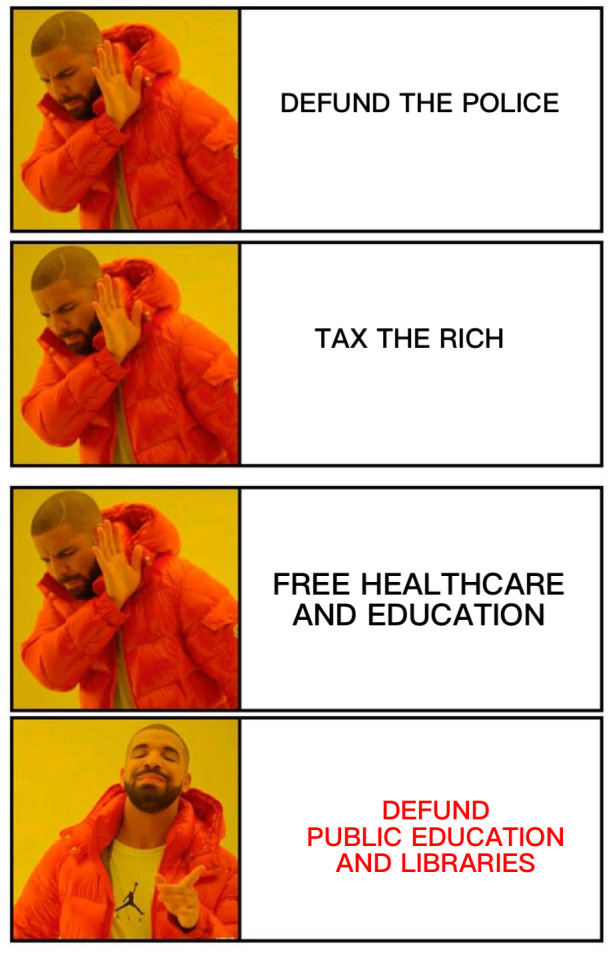

The phrase “defund the police” has become a lasting reminder of Congress’s colossal failure to address criminal justice reform. Even though the majority of Americans agreed that George Floyd’s death was a symptom of “an underlying racial injustice problem,” Congress failed to pass the George Floyd Justice in Policing Act, which would enact structural changes to policing, introduce a method for transparency, and accountability.
So, why did “defund the police” get so much bad press when conservatives have been defunding public schools for years without so much as a peep from the other side of the aisle? Because Democrats have a horrible habit of responding to the right’s positions rather than taking on bad-faith talking points. But, letting conservatives’ hypocrisy dominate the narrative is dangerous. The debate over “defund the police” was never about public safety; it was about police controlling Black people in their communities.
Likewise, defunding public schools isn’t about providing parents with “choice.”
White students are not short on options for pursuing their education. America’s first school was whites-only, and only through Black parents’ advocacy over generations did that dynamic change. Attacking public school funding is a blatant attempt to deny Black, Latino, and other marginalized students equal opportunities as White students.
Approximately 64% of Americans live paycheck-to-paycheck and can’t possibly afford to send their children to private schools. Conservatives are trying to find a way around Brown v Board of Education, where they can still provide separate and unequal opportunities for Black students.
(continue reading) related↵ related↵
#politics#defund the police#public education#charter schools#republicans#school choice#back door re-segregation#blacklivesmatter#white supremacy#private schools#brown v board of education#segregation#school desegregation#profitized education#for profit education
68 notes
·
View notes
Text
I’m wondering what are peoples experience with education? specifically in regards to streaming or segregation (especially if you went to school in Australia)
I think a lot about this topic. I’ve always think the problem is the thing that isn’t talked about is the dissonance between what something should do in theory and how it plays out in real life
in systems that stream kids early the idea is that they can learn at their own pace which is good, but is the reality that your basically stuck there for the rest of you’re schooling? and so your opportunitys later in life are affected at such an early age. And who does that affect most? disadvantaged kids
not to mention the feedback loop of self perception. If kids get the message they can’t do something then they are going to check out.
My own experience wasn’t that dramatic. We didn’t have streaming early on BUT it wasn’t until i went to a fancy private school for high school that things took a turn. (this is just gonna be self indulgent trauma dumping from this point lol)
it might be different now but at the time you had your first 3 years of highscool then your last two years were spent getting what they call an ATAR which is a score out of 100 that determines your university entrance
Now i would be curious if this is more common in private schools than public schools but ATAR results are public and often used as a measure of a schools “quality” not to mention a selling point of schools…especially private schools
So that leads us to this situation. My school did exams in year 10 and probably before that, these exams determined which subjects we were “recommended” i don’t know how this compares other schools
I did poorly in those exams for reason both my fault and out of my control. So I was “not recommend” to sit the exams for uni entrance. What devastated me so much was it was the exact kick up the ass i needed yet I would never have the chance to turn things around. It really was a gut punch
The same thing happened to the daughter of a lady from work shortly after i left school, so she pulled her out of the (fancy private) school and enrolled her in a public one.
I did their vocational track, I am very fuzzy on the details so if i had a plan in mind I might have gotten more out of it but i had no plan because my self perception was shattered and i didn’t know what i wanted to do. The track was just work experince, and work experince sucks, and it sucks for somone who has very bad anxiety and poor social skills. I longed to be back in the classroom.
I don’t want to trash vocational routes or vocational education/training. The best people at my work who can run circles around me do not have degrees. There are many great careers out there and university degrees are probably overrated
that said I don’t think the vocational track really worked for me. I left school depressed and with nothing to show for it. I was totally checked out for the last two years and didn’t care, and still feel bad about the money my parents wasted in school fees, i really wish i had just gotten the fuck out of there and done proper cert, it was even suggested to me but the prospect of not even finishing school was too much to bear.
I know it’s kind of a moot point cause in Aus we have a lot of alerterante pathways to university and i even took one out of school and failed out of a semester of uni (for personal reasons not related to acedemics) but on some level it really affected me, especially after dropping out
I now have a bachelors and work in a well respected feild. I work with people from all kinds of backgrounds so i think i’ve pretty much out all that insecurities to rest
I just think schools should listen to what the students goals are and not shove people aside in the name of test scores. It’s not that Vocational tracks are bad, i think they are good and have a lot of undeserved stigma. But I think people have choices and not have those choices yanked away so early in life.
#school#education#neurodivergent#neurodivergent education#higher education#university#college#high school#vocational#Australian education#australian education system#australia#private schools#public schools#private school#catholic school
3 notes
·
View notes
Text
Mondays
Wednesdays
& Fridays
are Education News days.
#education news#education#news#reporting#videos#channel#rumble#odysee#locals#journalism#independent journalism#truth#public schools#private schools#homeschooling#parenting
6 notes
·
View notes
Link
5 notes
·
View notes
Link
The policies most proposed on Capitol Hill are ESAs (“education savings accounts”) and “money follows the child” plans. Both sound benign. Many families already have an education savings account in the form of a 529, in which they have put their own money to be used at a later date on education expenses. As to the latter, it makes sense to have already spent tax dollars follow a child to whatever school they attend, be it public, private, or at home.
But ESAs are not true savings accounts. With an ESA, the government collects the taxes designated for public education, then redistributes those dollars to families who choose not to attend public schools.
Because the money flows through the government, the government then gets to decide how it is spent—for example, what types of school, curriculum, and tutoring programs. The same is true for “money follows the child” bills. The government would still collect taxes meant for public schools, but it would just broaden what those taxes can be spent on. The government, and not families, would still have the final say in what is considered an “approved educational expense.”
When bureaucrats are empowered to decide what is acceptable, education freedom is threatened. Many families—including those who are Muslim, Christian, Jewish, and Sikh—choose to homeschool because they want to include religious material in their learning. Others have children with learning disabilities who require special tutoring services.
The flexibility of homeschooling has given rise to a plethora of education methods that allow parents to address these specific concerns. These methods range from interest-driven learning like Montessori (focused on hands-on, collaborative play) and Finland’s forest kindergarten, where children spend up to 95 percent of their time learning outdoors, to more traditional textbook learning. Which one person, bureaucrat or otherwise, is equipped to say that this wide variety of learning methods all fit into the “approved educational expense” box?
Government policies to fund education open the door to other regulations: lists of curricula that families have to use, mandatory homeschool registration, and even mandatory home inspections. There have been attempts to implement all of these at the state level. The pressure would be intensified if the federal government started regulating home education as well.
The corrosive nature of these public funding schemes can be seen in California. Currently, California, believe it or not, is one of the best states to homeschool in. Homeschool families register as private schools, and private schools are not subject to the same testing and curriculum requirements as the public options.
But any school in California registered as a charter school, not a private school, receives funds to be used for approved expenses. The lure of supposed free money is powerful, and many families have used this provision to register their “homeschool” as a charter school in order to receive government funds. The result is that California has seen an increase in public-school-at-home families and a decrease of true home-based education families free from the state’s regulations.
Abuse of California’s charter school provision has also led to attempts at increased regulation in the state. In recent legislative sessions, state legislators have introduced bills to provide more oversight over these “homeschool” charter schools. Private school families fear this regulation push could target them next.
#Maggie McNeely#homeschooling#school choice#subsidies#bureaucracy#deep state#education savings accounts#parental rights#education#Montessori#forest kindergartens#CA#charter schools#private schools#emphasis added to original
12 notes
·
View notes